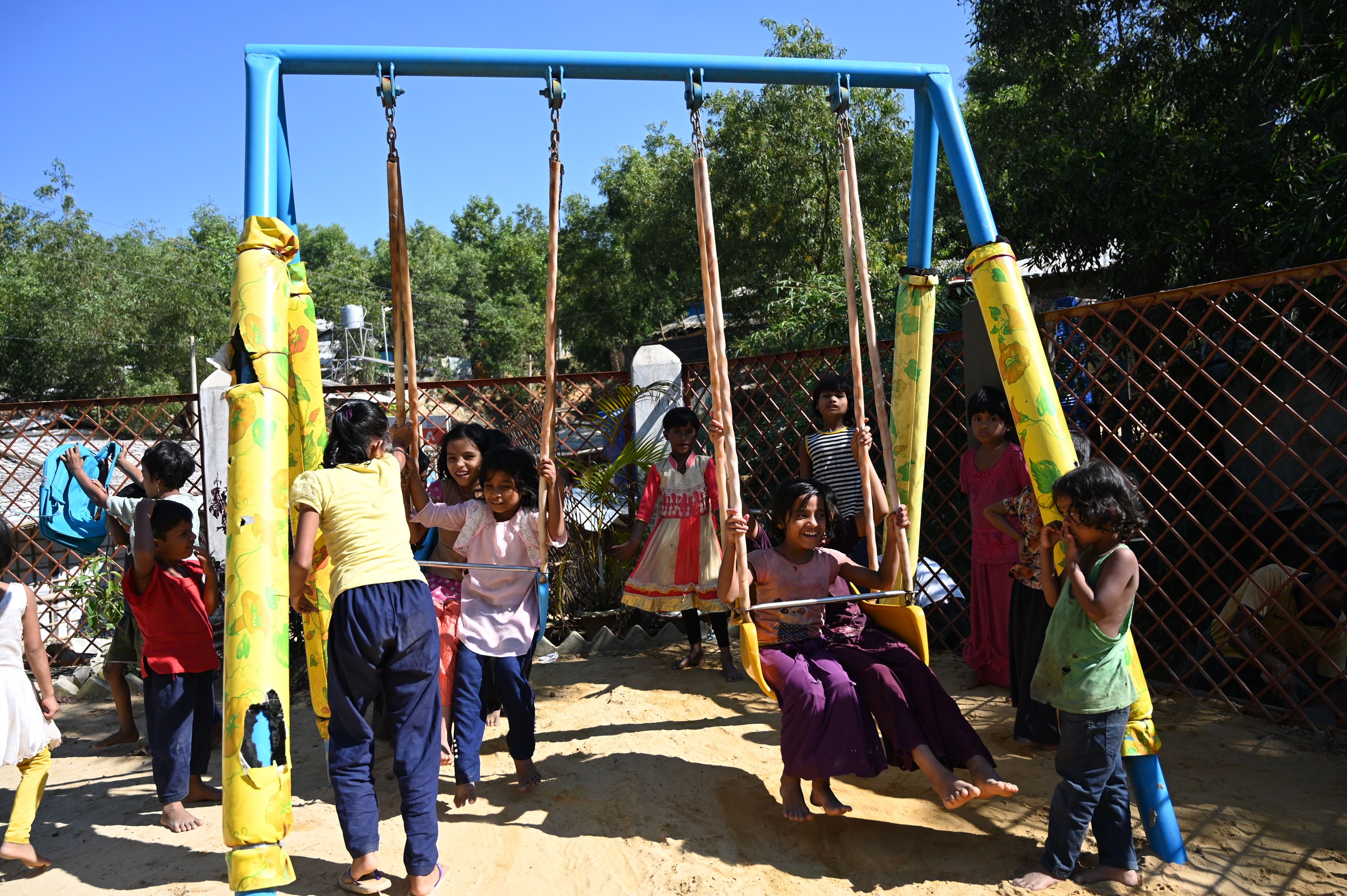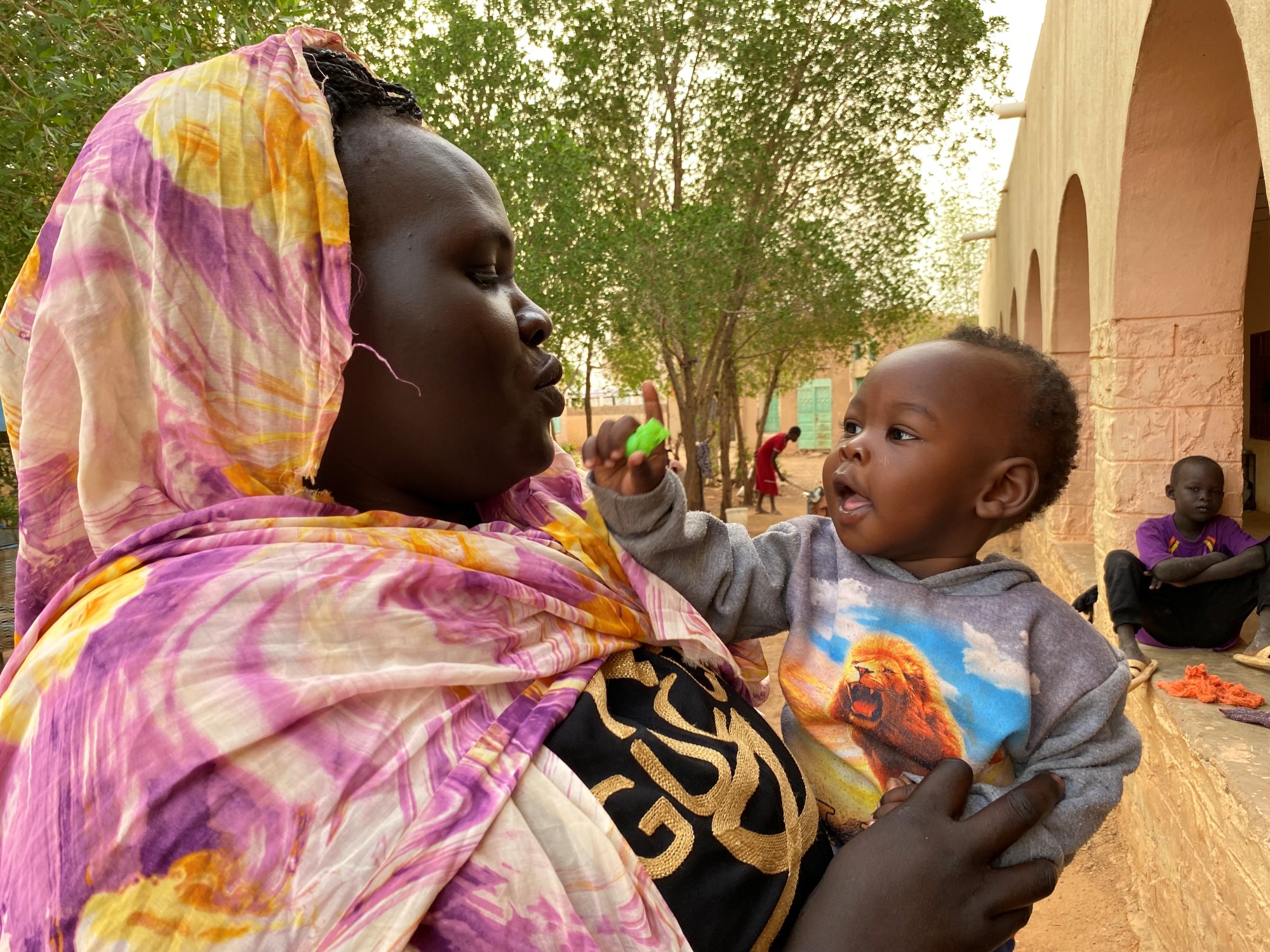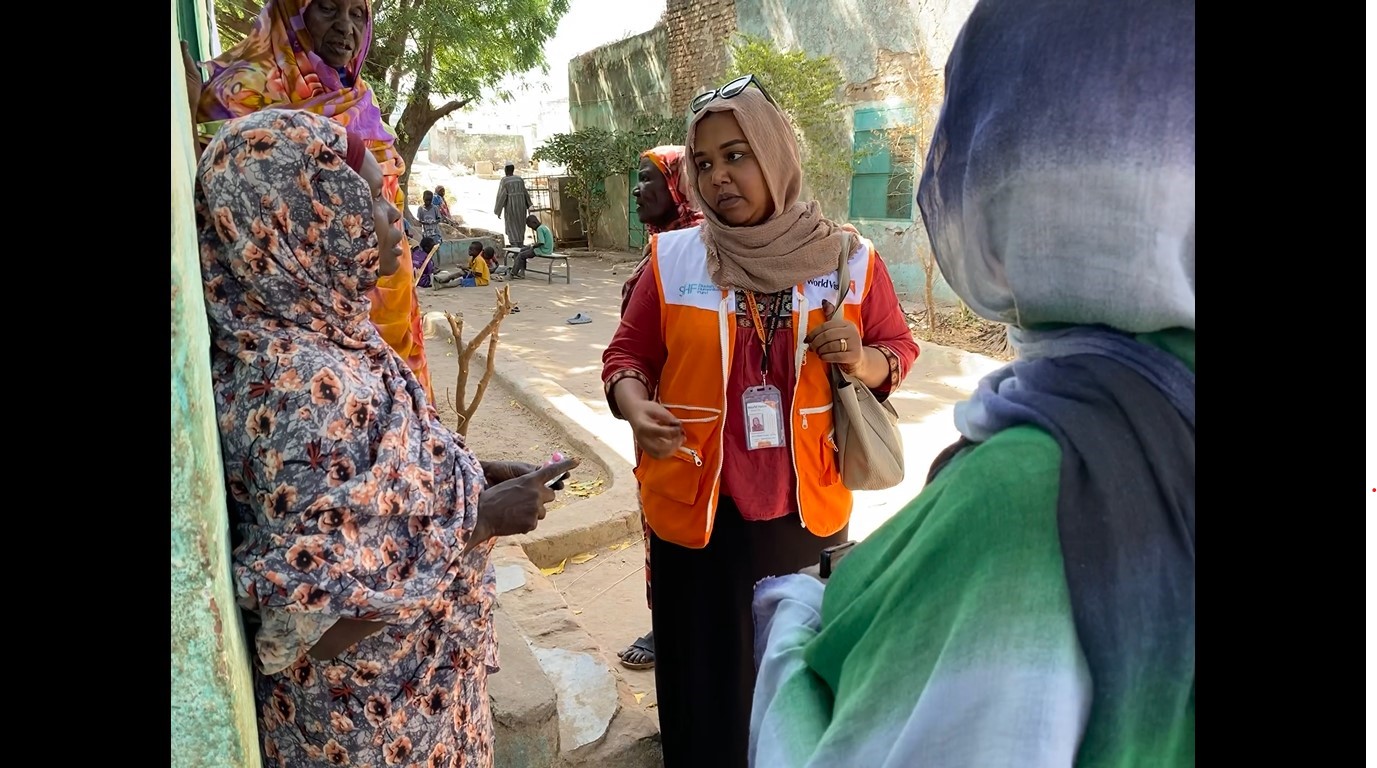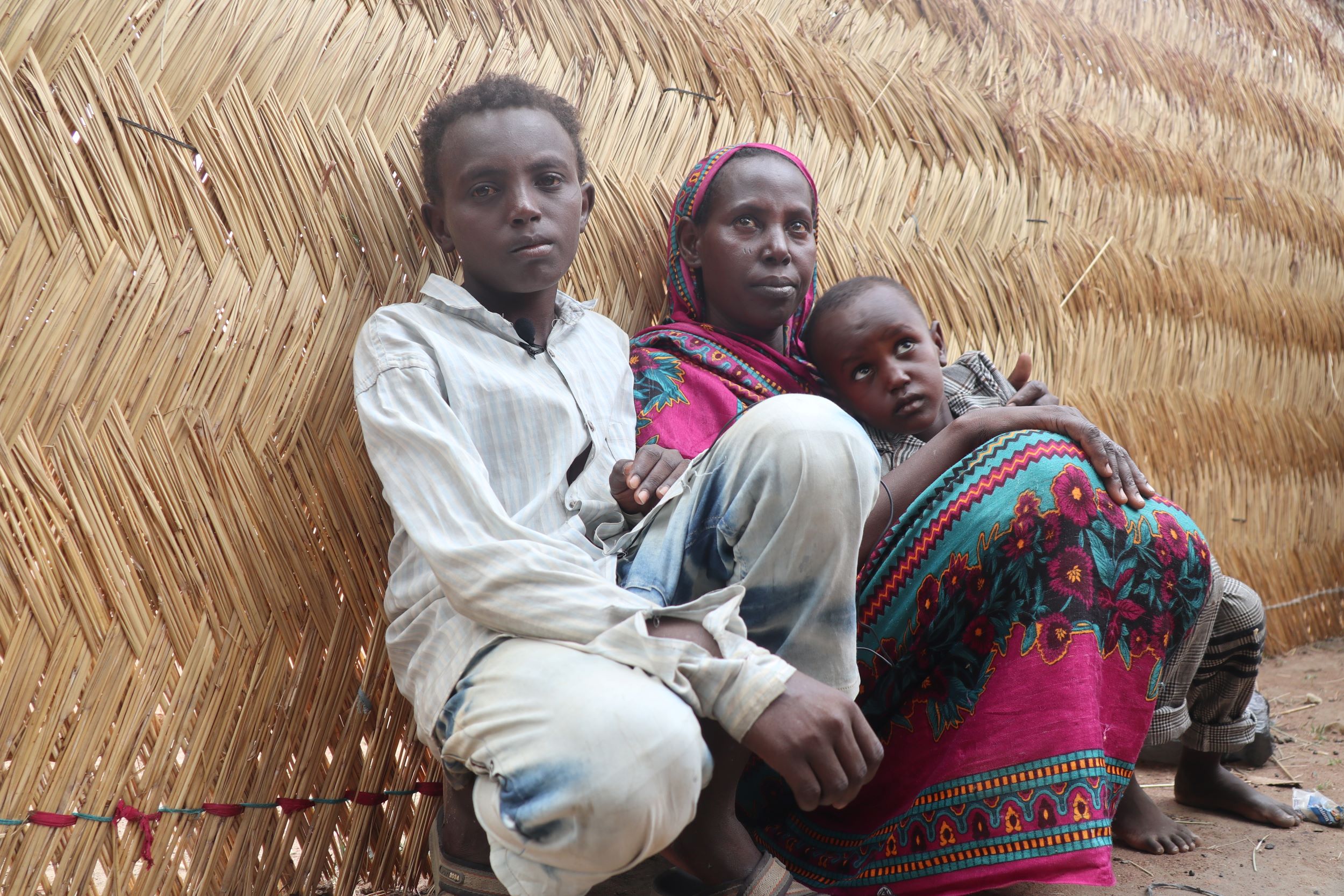
Personal stories from the Sudan war
A look at some of the challenges Sudanese refugees face as they flee conflict.
You probably wouldn't be surprised to learn that 70% of the world’s hungry people live in places that are affected by war and conflict. Although we live in a world that has enough food and resources for every person, conflict drives food insecurity as it disrupts both global and local food markets.
Keep reading to learn about Sudan's ongoing war and how it's impacting the lives of Sudanese people through first-hand accounts by Ismail, Halima and Minal.
Sudan – one of the world's worst humanitarian crises
The people of Sudan have seen for themselves how conflict and hunger go hand in hand. Their lives have been turned upside down due to an ongoing war between the Sudan Armed Forces and the Rapid Support Forces.
It’s now more than a year since the conflict broke out, forcing over nine million people to flee their homes in search of safety.
The war, which began in April 2023, is affecting everyone, but especially children. The situation in Sudan itself is dire as John Makoni, National Director of World Vision Sudan, warns:
“Sudan is currently quite possibly the worst place in the world for a child to live, due to the huge numbers of boys and girls affected by the conflict," explains Makoni. "but also because of the full range of physical and emotional challenges they face. Children are literally being starved, abused, and traumatised by what they are experiencing and witnessing. Many have fled the violence but have been unable to find any real safety.”
John Makoni
National Director of World Vision Sudan
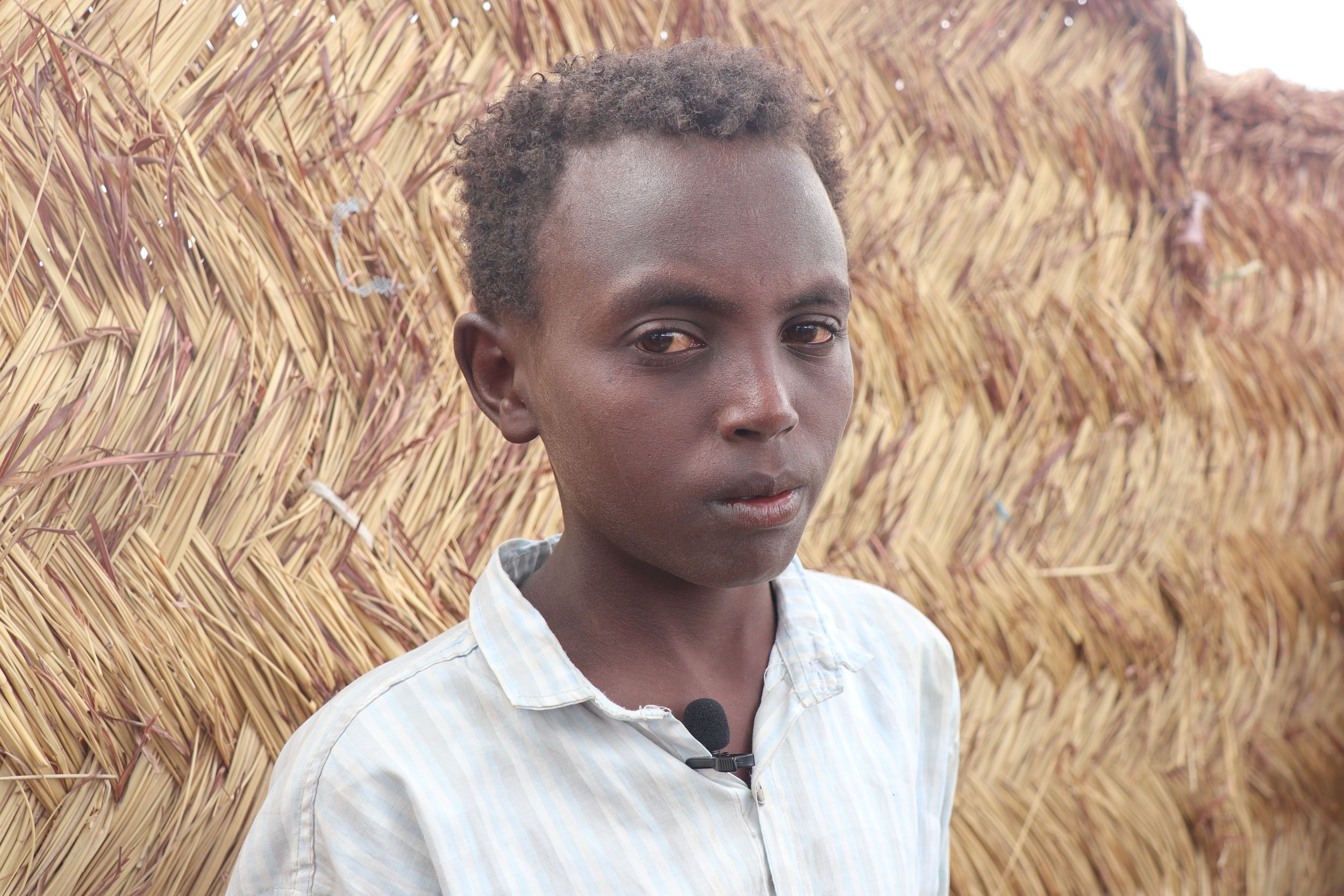
Ismail's story: Witnessing war
For many of those who witnessed the horror of conflict in Sudan, they then faced the trauma of fleeing their homes in search of safety. And now face hunger as well.
Ismail, 15, is a refugee now safe in a camp in South Sudan. He describes his escape: “I travelled towards the border in a car, and the rest of the way in a rickshaw. I came with both my parents. The situation at home is not good. People are fighting and there is killing. The camp is safe but there is a lack of food."
He continues, "Most of the time I feel hungry plus I have had some stomach upsets. There’s a shortage of water and I’ve been having headaches. I want to continue my education and become a doctor or a soldier. These are my two dreams.”
World Vision’s work in Sudan
Before the war, World Vision’s work in Sudan focussed on providing clean water, sanitation, income generation, and health and nutrition activities.
Along with a number of other countries in the region, Sudan was facing a severe hunger crisis and rising levels of child malnutrition. This comes from the lack of access to nutritious food and healthcare services.
In fact, even before the conflict, one in three in Sudan were in need of humanitarian assistance, including food aid. World Vision helped communities meet the basic needs of many families. In 2022, for example, World Vision provided food and cash to over 800,000 people, in partnership with the UN's World Food Programme (WFP).
Sudan's education crisis
According to the WFP, today more than half the population are struggling with hunger and malnutrition, while 18 million are acutely food insecure and nearly four million children under five are malnourished. Most of these people are stuck in places that are hard to access due to the conflict.
In addition to the hunger crisis, there are other concerning developments. An estimated 19 million children are out of school, not only being deprived of an education but of the psychological safety that comes from attending classes. And in the midst of their struggle to survive, children are suffering sexual violence, ethnic targeting, abduction, recruitment into armed groups and subjection to terror by men wielding weapons.
According to the UN Committee on the Rights of the Child, some 24 million children in Sudan are “at risk of generational catastrophe”.
World Vision shares this concern about how the conflict in Sudan is impacting children.
READ MORE: Supporting Sudan with mobile clinics
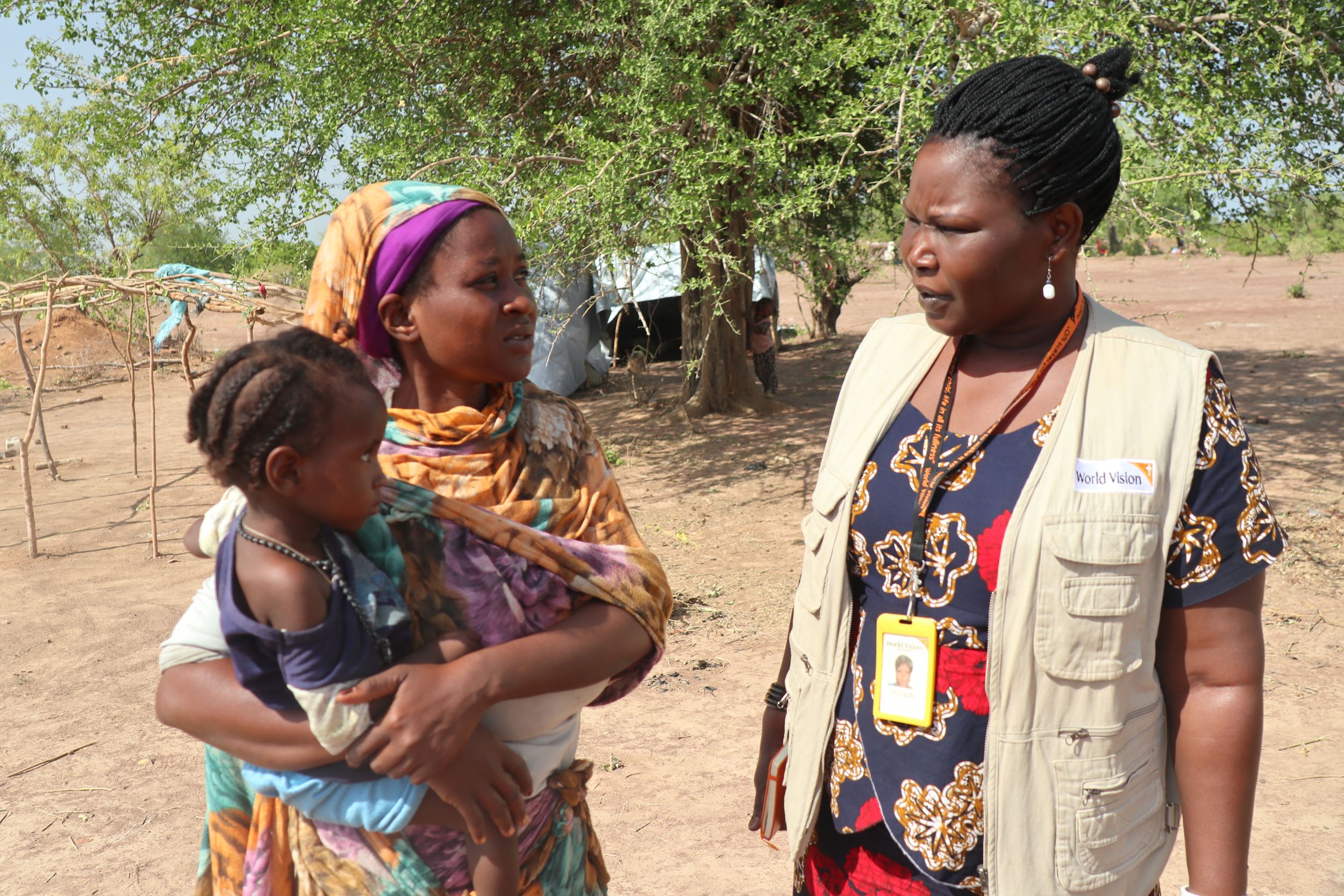
Halima's story: Leaving everything behind
Halima is a 30-year-old widow with five children. She made the heartbreaking decision to leave her four eldest children in the care of others and head to South Sudan with her baby for safety.
She says, “All the time I just think about my children I had to leave behind. When we have food here I feel terrible as I am eating and I worry my children are hungry. I’m worried that someone might take my children back in Sudan. I don’t know what’s happening to them.
“To reach this camp was not easy. It took almost one month. I travelled on foot then got a ride in a car. This conflict has separated me from my mother, my aunty and my uncle. I don’t know where they are now. They all fled in different directions. I left all my possessions behind when I fled the conflict. Now I sleep on the ground. There is nothing even for me to sleep on.”
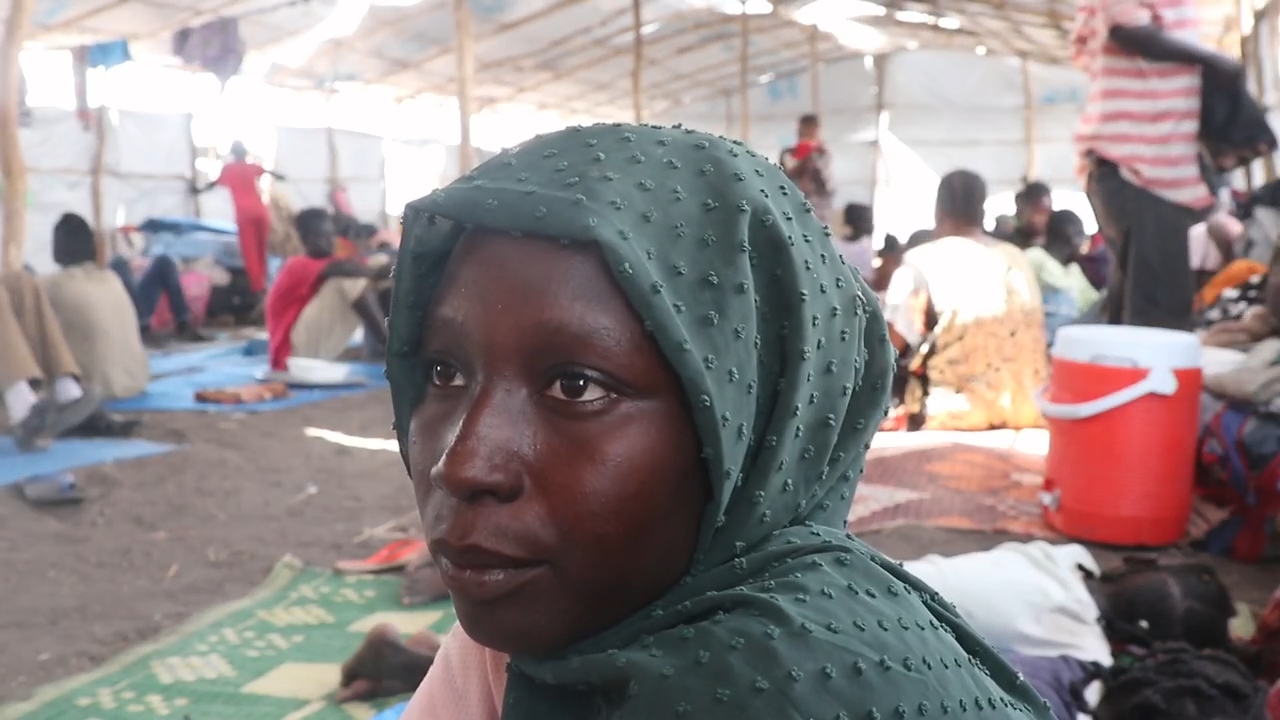
Minal's story: Facing horrifying scenes
Minal is 21 and should be looking forward to her future. Instead, she remembers what happened when the war started. “We faced a lot of challenges and witnessed a lot of destruction. For a week we stayed indoors. We witnessed bad things. Dead people and people injured by bullets.”
When her family fled, they spent days on the road trying to find safety. Minal adds, “I was hoping to sit for my certificate but I did not and the future will be difficult. For Sudan to be stable again will take years. Based on what we witnessed Sudan will never be the same again.”
Responding to the crisis in Sudan
World Vision’s response to the crisis in Sudan spans multiple countries and aims to ensure those affected have access to essentials including food, clean water, hygiene facilities, healthcare, nutritional services and protection services, including mental health support.
We believe every child should be free from hunger, having access to enough nutritious food – even when living in places impacted by war and conflict. That's why we've launched our global ENOUGH campaign.
When you join our ENOUGH movement, you'll be helping children facing the worst hunger crisis in decades.
Learn how you could be part of something bigger, creating greater change and making a long-lasting difference to children’s futures.

